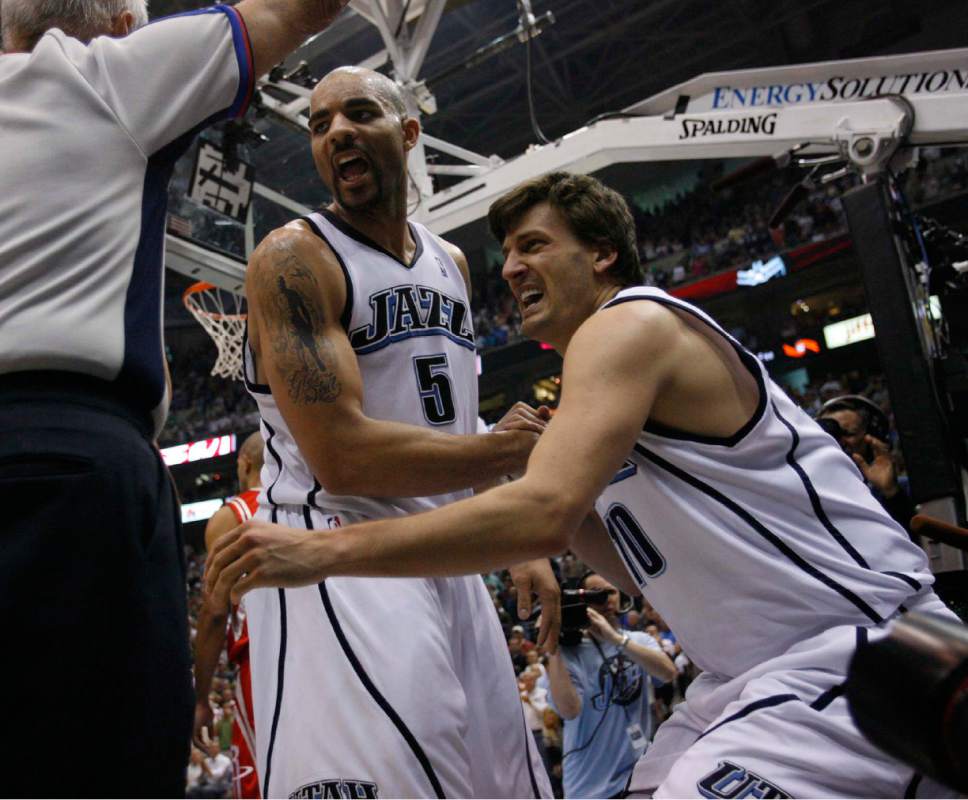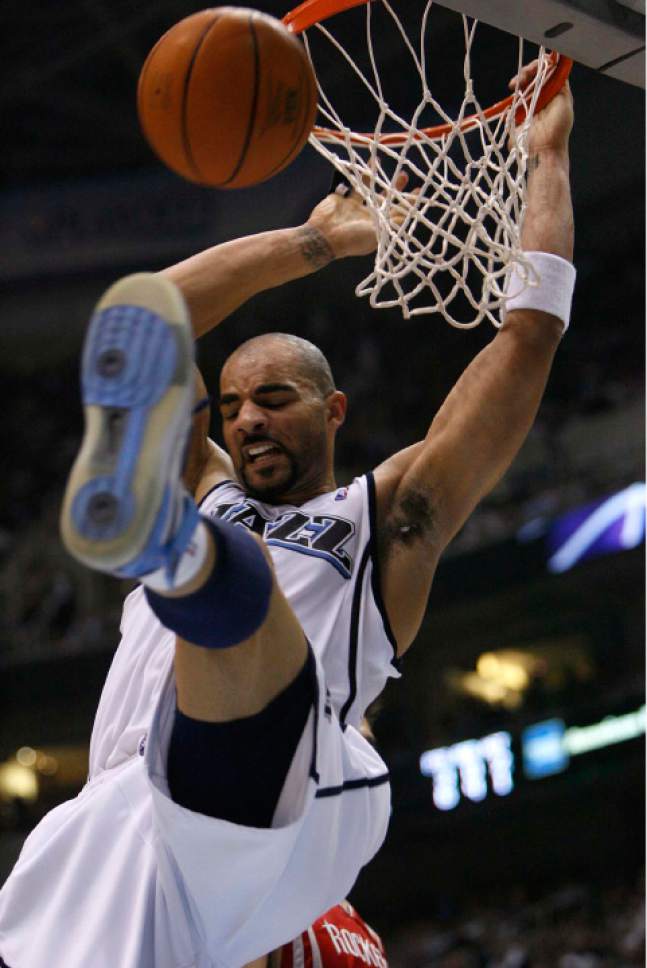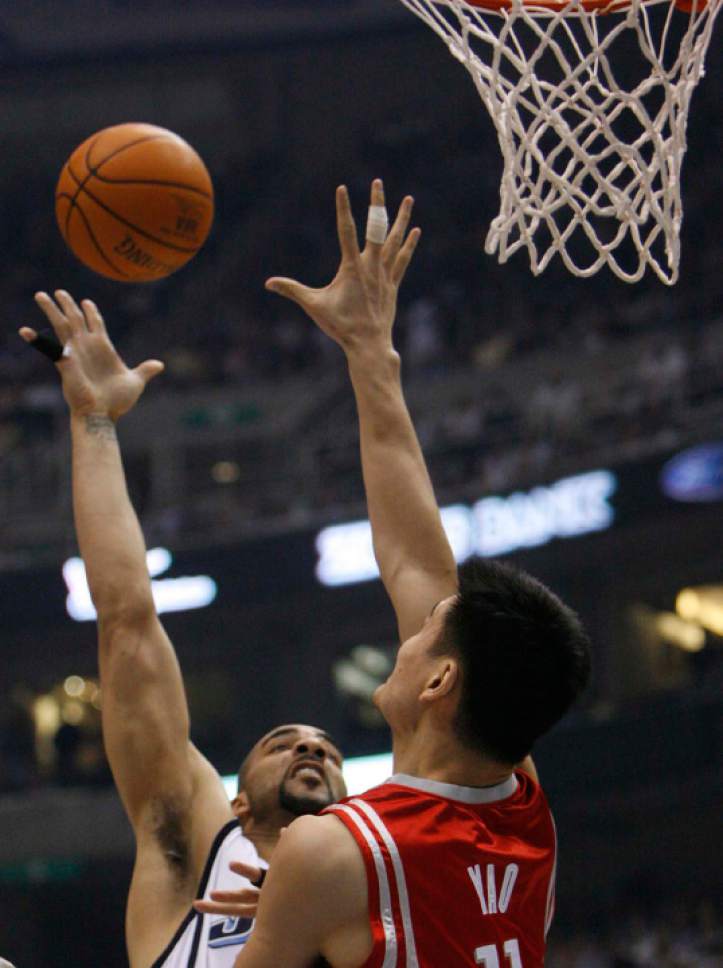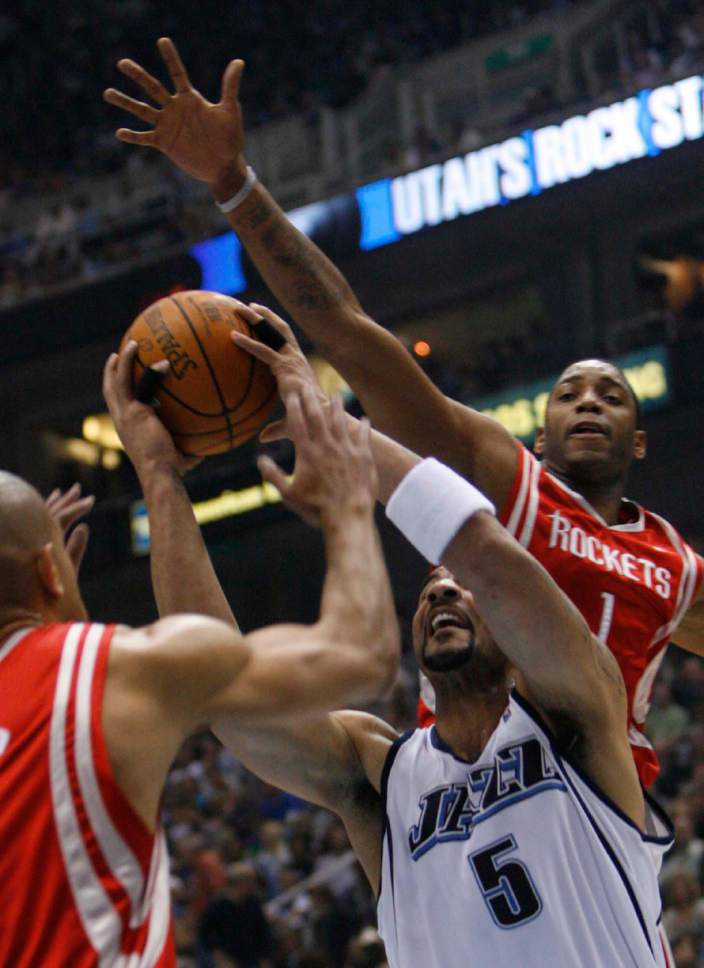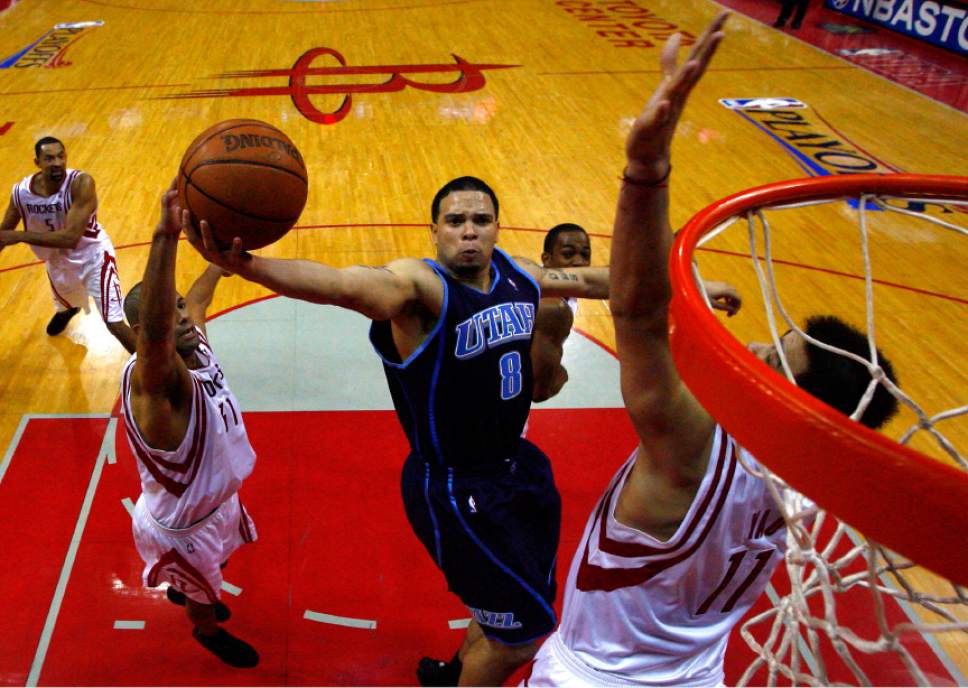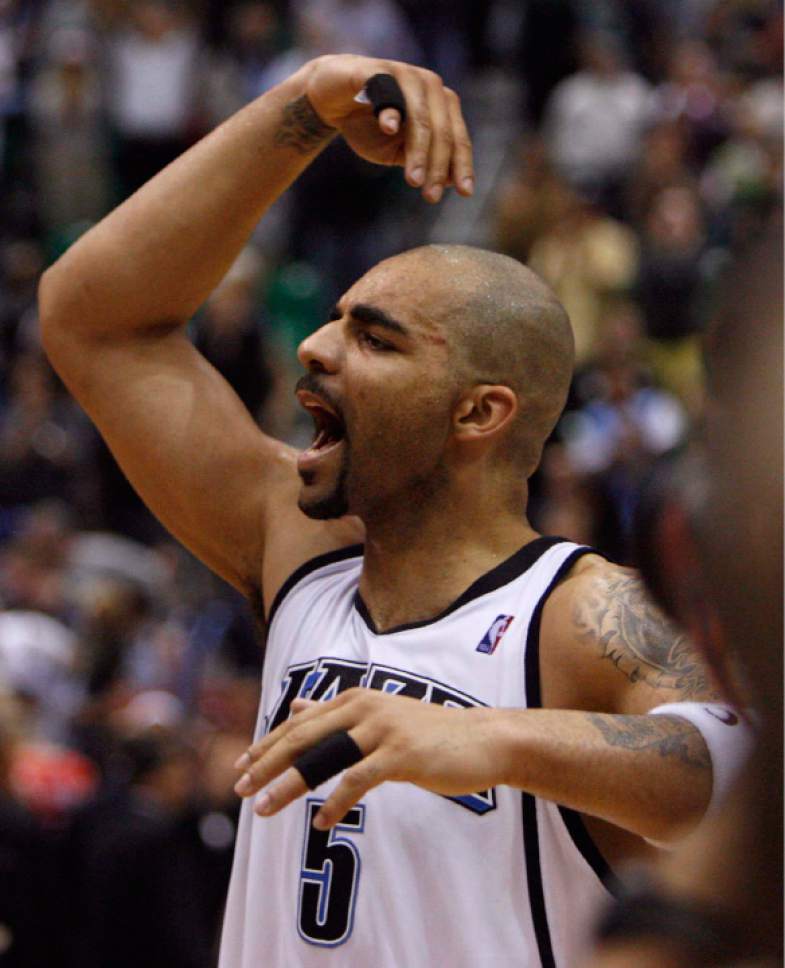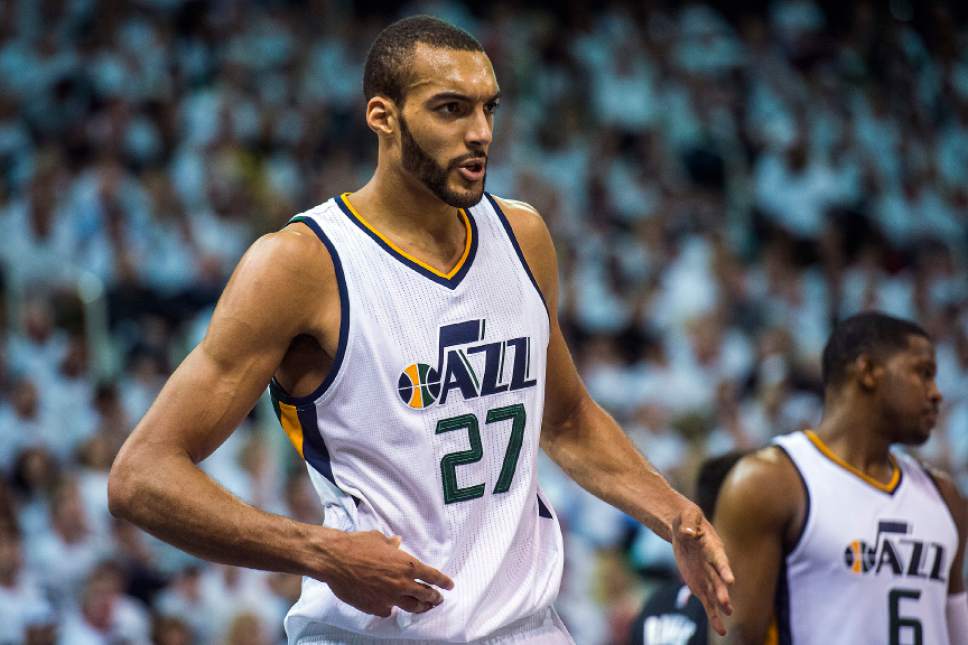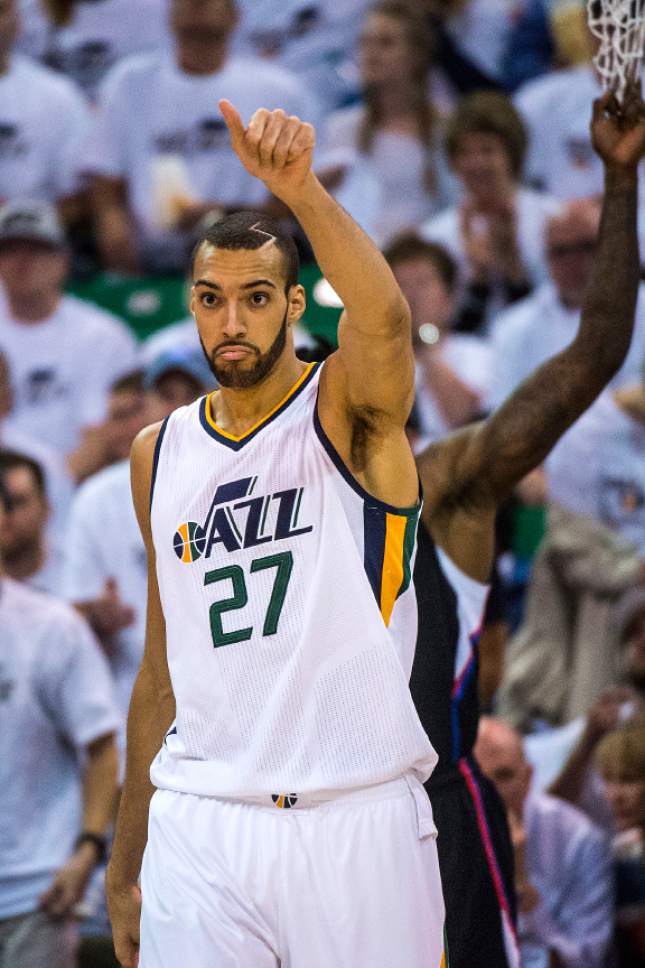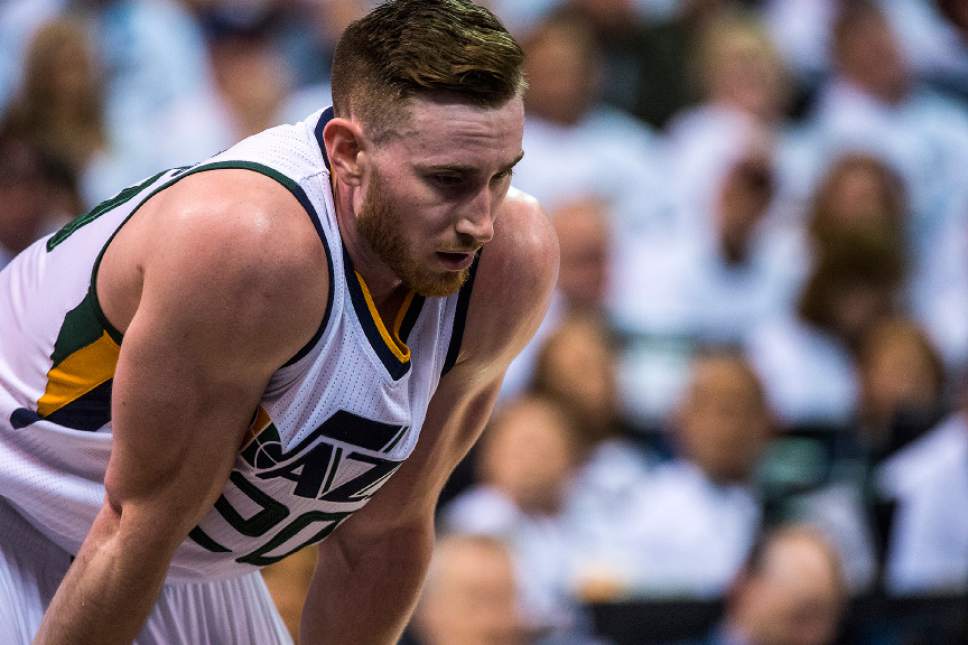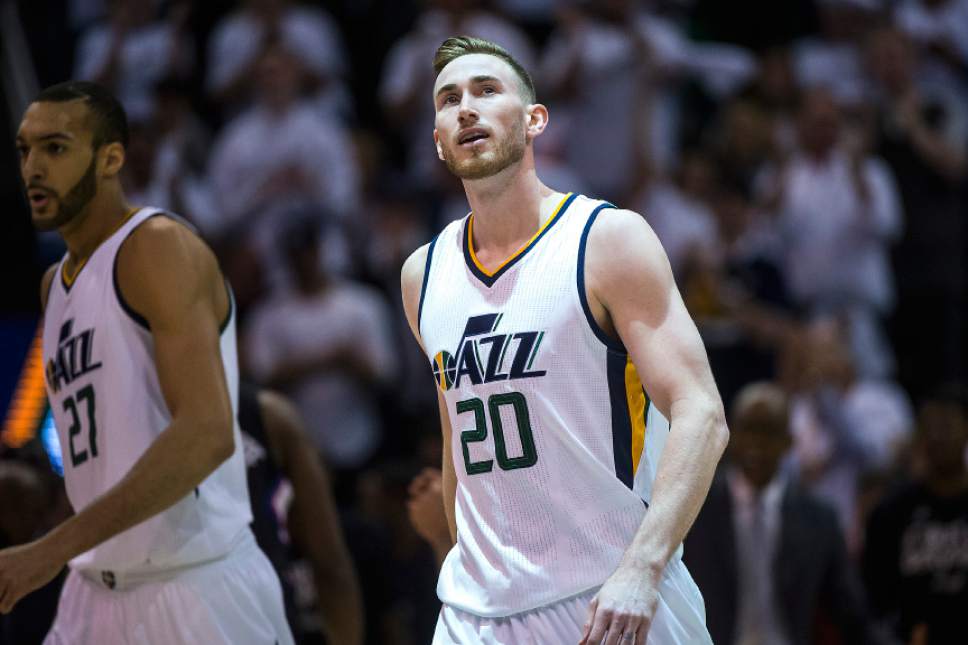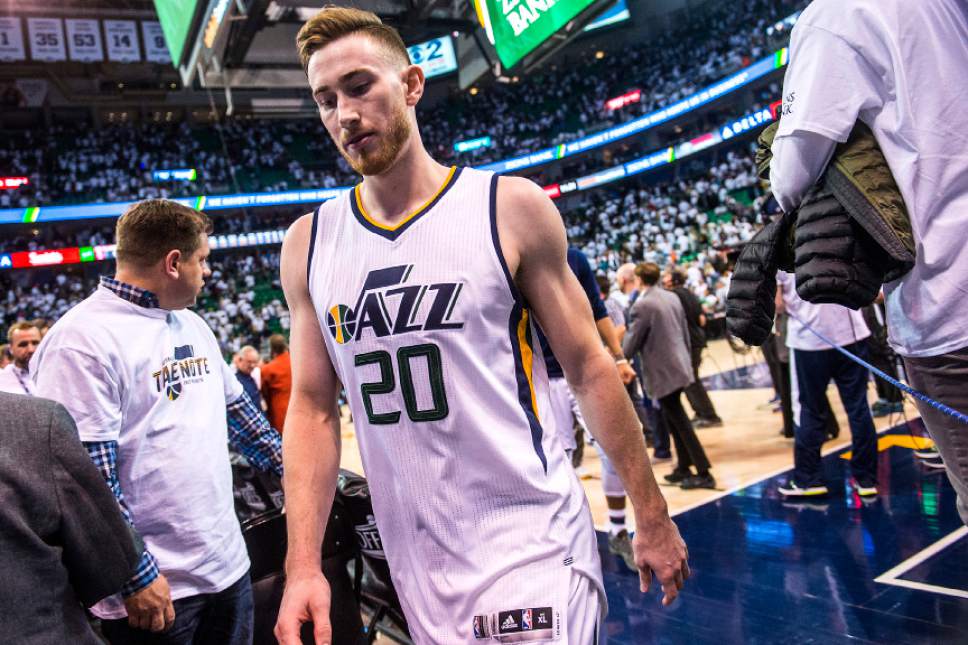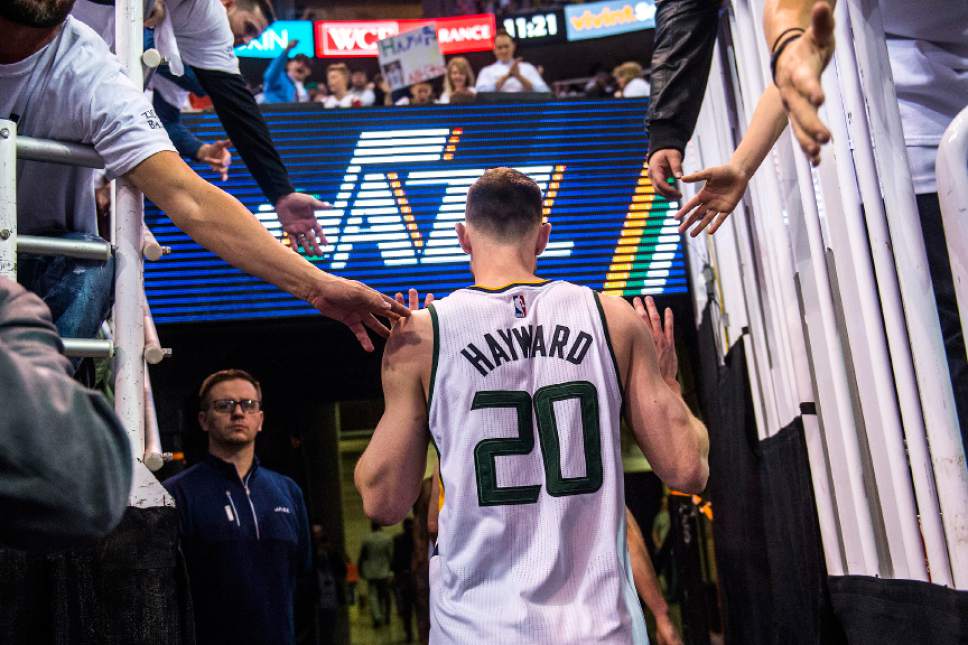This is an archived article that was published on sltrib.com in 2017, and information in the article may be outdated. It is provided only for personal research purposes and may not be reprinted.
Los Angeles • The Utah Jazz have landed in the Golden State in an effort to extend their playoff run, although Los Angeles was not their preferred California destination this weekend.
Instead of playing the Los Angeles Clippers in the deciding Game 7 of an NBA first-round playoff series Sunday afternoon, the Jazz already could have advanced to the Western Conference semifinals against the Golden State Warriors in Oakland. Game 7 is a checkpoint the Jazz would rather have skipped in the franchise's climb.
Yet regardless of how they arrived at this stage, the Jazz can only welcome the opportunity.
"We've come a long way from where we were three years ago," All-Star forward Gordon Hayward said late Friday night after a 98-93 loss in Game 6 at Vivint Smart Home Arena. "If you had told me at the beginning of the year you'd be in a Game 7 against the Clippers in L.A., I'd have been like, 'Bring it on.' "
So the Jazz will play their first Game 7 in 10 years. The 2006-07 team led by Deron Williams and Carlos Boozer rallied for a victory in Houston that symbolized the franchise's temporary rebirth after the era of legendary stars John Stockton and Karl Malone ended four years earlier. The Williams/Boozer collaboration concluded in 2010, marking the beginning of another rebuilding job that took considerably longer.
"We've been patient, as management has asked," said Jazz fan Patrick Hunt, of Kaysville. "I knew they had a calculated plan."
General Manager Dennis Lindsey's building project has delivered a partial payoff to Jazz fans, including Joe Johnson's winning shot in Game 1 in Los Angeles — the franchise's first victory in a playoff game in seven years. The question as of Sunday is whether merely competing for seven intense games with the Clippers is satisfying enough. Having the season end in April would be a letdown after the Jazz were one home-court win from advancing to meet the glamorous Warriors.
That series would be fun, no matter how long it lasted. The Jazz would love to test themselves against the Western Conference's best team, providing another gauge of their growth. If they lose to the Clippers, a summer of uncertainty will commence.
Hayward can opt out of his contract and become a free agent July 1, available to other teams such as Boston. The Celtics are led by Brad Stevens, his coach at Butler University, and play in the Eastern Conference, where the road to the NBA Finals is less arduous.
Hayward's future has framed the Jazz's 2016-17 season, with management, coaches and players trying to impress him about the team's possibilities in the coming years. A playoff series victory would be viewed — from the outside, anyway — as a sufficient sign of progress to persuade Hayward to stay.
That's another reason why losing Games 6 and 7 would be discouraging in Jazzland, even if a 51-31 record in the regular season and a competitive series against a veteran Clippers team have stirred interest in the franchise. A major renovation of the arena is underway, and work will accelerate once the season ends. The goal is to enhance the experience for fans who have lived through the Jazz's on-court rebuilding, with Hayward as the centerpiece.
The team drafted him in 2010, the summer after the Jazz of Williams and Boozer posted their fourth straight 50-win season. The rebuilding began with a pre-emptive trade of Williams in February 2011, before he could become a free agent.
The Jazz made the playoffs in the lockout-shortened season of 2011-12, but were swept by No. 1 seed San Antonio. Two years later, after Lindsey had allowed key players such as Paul Millsap and Al Jefferson to depart in free agency in the interest of starting over, the Jazz dipped to 25-57 and coach Tyrone Corbin was fired.
The hiring of Quin Snyder, Hayward said recently, became the "turning point" of his pro career as their relationship quickly developed.
By then, the Jazz had drafted center Rudy Gobert, even while not imagining he would develop into one of the NBA's best defensive stoppers in his fourth season.
The Jazz improved to 38 wins in Snyder's first season of 2014-15, then won 40 games and barely missed the playoffs last year, amid injuries. That may have been a blessing, as they used their No. 12 draft pick to acquire veteran point guard George Hill from Indiana in a three-team trade. Lindsey added more experience by trading for San Antonio forward Boris Diaw and signing Johnson as a free agent. With Hayward and Gobert as the team's central figures, the veterans helped stabilize the Jazz during another series of injuries this season.
Gobert was hurt on the opening possession of Game 1 against the Clippers, but the Jazz won via Johnson's buzzer-beating shot. Johnson then led a rally in Game 4 by scoring 11 straight Jazz points, while Hayward missed the second half due to food poisoning.
Everybody was healthy for Tuesday's Game 5 in Los Angeles, where the Jazz steadied themselves in the fourth quarter of a 96-92 victory. That win created anticipation for a home-court celebration and a matchup with Golden State, and Johnson almost delivered another heroic shot Friday. But he missed a tying 3-point attempt from the left wing in the final three seconds of Game 6.
At halftime, workers had cut down a net on one of the Vivint Arena baskets. That's a basketball tradition for commemorating a major victory. In this case, it was merely maintenance, with a replacement net required.
The Jazz know all about repair work, having experienced their share of it in this decade. Their immediate task is to fix what went wrong in Game 6, with one more chance to make a breakthrough season even more memorable. Amid the disappointment of Friday's failure, Snyder said, "Fortunately, there is a Game 7."
kkragthorpe@sltrib.com Twitter: @tribkurt


